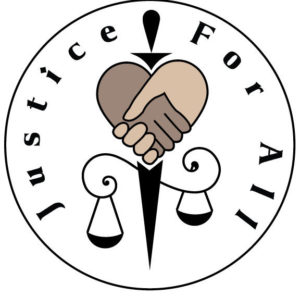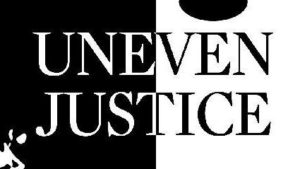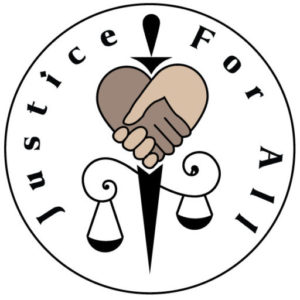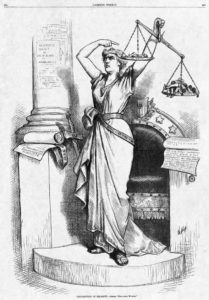Senator Bernie Sanders, Racial Justice Activist and Co-founder of Justice For All, Mark Hughes and Vermont Delegate to the Democratic National Convention, Ken Dean
Mark Hughes & Ashley Nellis: Racial disparities in state prisons
Editor’s note: This commentary is by Mark Hughes, who is an advocate for racial justice affiliated with Justice For All in Vermont, and Ashley Nellis, a senior researcher for The Sentencing Project in Washington, D.C., and author of “The Color of Justice: Racial and Ethnic Disparity in State Prisons.”
A new report on racial disparities in state prisons underscores the need for policymakers and state administrators in Montpelier to take a hard look at the policies, practices and prejudices that are playing out in our state’s criminal justice system.
By disaggregating and analyzing U.S. Justice Department data the Washington, D.C.-based nonprofit organization The Sentencing Project found that nationally, African-Americans are incarcerated at five times the rate of whites across the nation. In Vermont the ratio is even higher at 10 times the rate of whites across the nation. In fact, Vermont is the highest in the nation with one in 14 of all African-American adult males in state prison.
The findings come in a period when many states, including Vermont, have responded to assertions of unfairness in the justice system in the aftermath of the highly reported Trayvon Martin shooting four years ago in Florida and the shooting and racial protests in Ferguson, Baltimore and elsewhere more recently.
Policymakers and administrators in Vermont are aware of the disparities. Several states have legislated sentencing reforms or recategorized drug cases in particular, which account for many of the convictions that lead to racial and ethnic disparities, so that possession and use of drugs is more likely today to lead to treatment rather than extended imprisonment. State officials know that in the aggregate African-Americans are not disproportionately likely to commit certain drug crimes, but they nevertheless are more likely to wind up in prison where whites convicted of similar offenses may get alternative outcomes.
One of many practices that contribute to racial disparities in the criminal justice system in Vermont is the disproportionate number of traffic stops and searches of African-Americans by law enforcement. The Vermont Advisory Committee to United States Commission on Civil Rights provided a briefing on the challenges of racial profiling in 2009. Some of the recommendations have yet to be undertaken. Traffic stop data analysis in 2012 concluded that African-Americans were being stopped and searched at disproportionate rates by Vermont State (VSP), Burlington, South Burlington, UVM and Winooski police departments. In spite of a legislative mandate to collect race-based traffic stop data issued in 2012, this data is only beginning to become publicly accessible in 2016. VSP’s initial decision (in 2012) to release their data to third parties for analysis created discussion surrounding research veracity and efficacy and did little to provide true transparency or adopt the research as a benchmark from which to move forward. This year (with VSP’s long awaited release of five years of data), VSP released the data to Northeastern University and UVM as well as posted the raw data on their site. Based upon research produced by Dr. Jack McDevitt of Northeastern University, traffic stop racial disparities have increased in Vermont over the past five years. This is clearly as a result of the lack of transparency and a culture of denial. Dr. Stephanie Seguino’s (UVM) report on this data set was released last week.
In moving forward it is important that we move past using the collection of data to prove (or disprove) racial disparity, to that of using it to measure our progress towards parity. The consistent public release of the data will provide the transparency required for accountability in this area. Internal commitment to progress, analysis of this data, policy implementation, training and corrective actions (as required) will also be necessary to move these efforts forward. It is also important that we understand that this is a very small part of a much larger challenge.
In general, the national report suggests that while overt racism may not continually come into play in the criminal justice system, there are points of discretion in the system where arresting officers, prosecutors, judges and even defense attorneys may be predisposed to view one group differently from another. Policy makers in Vermont must work to achieve the transparency required to identify these points of discretion in the system and demand similar commitment to metrics, policy, training and corrective actions as required to ensure that Vermont lives up to its narrative of openness and fairness.
Concerns about differential treatment is important not only because every American is constitutionally entitled to fair and equal treatment under the law, but because of the collateral consequences that are attached to criminal convictions – reduced access to housing, education and employment opportunity chief among them.
There is a growing recognition across the country that mass incarceration practices have not contributed to public safety, but have instead created a system that is inefficient, unsustainable, and unfair. Mass incarceration has perpetuated disadvantages that African-Americans and other people of color have endured historically. Solving foundational problems through improved access to education, decent housing, prevention services focused on at-risk youth, and job training and placement is continually challenging but important.
But equally crucial, and probably more immediately manageable, is the identification and remediation of the policies and behaviors that lead to over-incarceration and racial disparities in prison in Vermont and elsewhere. State officials must fashion reforms that make the justice system smarter, fairer and less costly both in dollars and in the loss of human potential. We owe it to ourselves in this political, social and racial climate of change in 2016.








